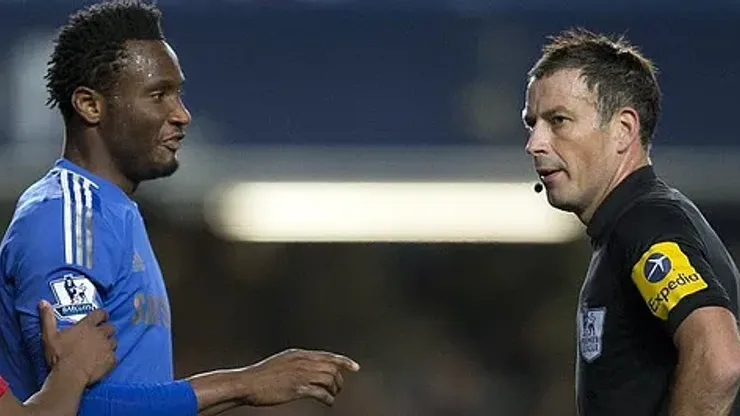Mark Clattenburg will referee Chelsea against Swansea this Sunday.
Despite Clattenburg’s magnanimous efforts to put the recent racial accusations against him to bed, we can learn some lessons, lest another hapless victim falls foul to indiscriminate accusations of racism.
Liverpool’s Luis Suarez and Chelsea’s John Terry are two high-profile players who’ve been punished for racial abuse. I hope their punishments are deterrents, but I also believe those who feign victimization, perhaps motivated by vengeance, should be deterred.
We all hope racism is expunged from soccer. The Premier League is one of the most popular sports leagues in the world, and its cosmopolitan nature is the source of much appeal. Nevertheless, just as we ridicule the player for waving an imaginary yellow card after being fouled, we should be equally cynical of players, and their employers, who exploit the current sensitivity towards racism by hurling accusations in bad faith.
Clattenburg’s appointment for Sunday’s game conjures memories of Chelsea and Ramires.
Last October, Ramires injected himself into an incident between Clattenburg and an overwrought John Obi-Mikel.
Hosting Manchester United, Stamford Bridge was a bit louder than normal that day. Clattenburg, having already issued a yellow-card to Mikel for his remonstrations, kept his cool in the controversial incident. As the ill-disciplined Mikel continued to back-chat, Clattenburg put his finger to lips in a gesture of silence. Mikel continued his tantrums; nevertheless, Clattenburg remained poised, a picture of restraint, as he ordered Mikel to go away.
Mikel didn’t hear anything untoward in that order, but his team-mate Ramires, even further away, somehow contrived to hear a racial taunt amidst the cauldron of bellowing fans. When interviewed about his allegations Ramires explained his reaction as “instinctive.” That’s pretty damning towards his integrity, considering instinctual conclusions often unravel in the cold light of day.
Given the egregious harm to Clattenburg’s personal and professional life, I describe Ramires reaction as reckless as one of Mikel’s miss-timed tackles, as misguided as one of his passes. Remember, Ramires was also “instinctively” seething over perceived injustice by the referee that day.
If the F.A. wants to red-card racism in football, they must encourage reporting of legitimate abuses, and they must discern between good and bad faith complaints. They must also discourage “instinctive” accusations from solitary players with an axe to grind. Flimsy allegations from a disconsolate player who speaks broken English, yet can decipher the heavy Geordie accent of a referee amidst the bedlam of Stamford Bridge, warrant suspicion.
The forgiving and classy Clattenburg has said: “The on-pitch relationship between match officials, players and managers is the best we’ve ever known it.” For that to continue, improvable allegations of racism must be squelched so that the FA can truly “Kick it out.”
Let’s see: Terry got banned for 4 matches for racially abusing Anton Ferdinand; Suarez was suspended for 8 matches for doing the same to Patrice Evra. What should a footballer get for unsubstantiated claims that do even more harm to anti-discrimination efforts?
Let’s split the difference – a 6 match ban as the benchmark for eliciting a racially induced wild-goose chase. That ought to send the message loud and clear: we don’t tolerate frivolous accusations that ultimately undermine the laudable goals of bodies like “Show Racism the Red Card.”
200+ Channels With Sports & News
- Starting price: $33/mo. for fubo Latino Package
- Watch Premier League, Women’s World Cup, Euro 2024 & Gold Cup
The New Home of MLS
- Price: $14.99/mo. for MLS Season Pass
- Watch every MLS game including playoffs & Leagues Cup
Many Sports & ESPN Originals
- Price: $10.99/mo. (or get ESPN+, Hulu & Disney+ for $14.99/mo.)
- Features Bundesliga, LaLiga, Championship, & FA Cup
2,000+ soccer games per year
- Price: $5.99/mo
- Features Champions League, Serie A, Europa League & Brasileirāo
175 Premier League Games & PL TV
- Starting price: $5.99/mo. for Peacock Premium
- Watch 175 exclusive EPL games per season






